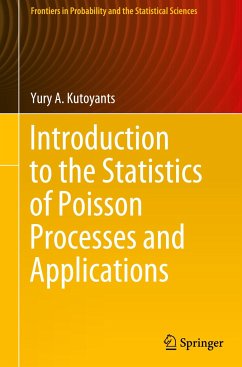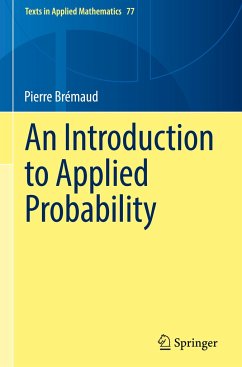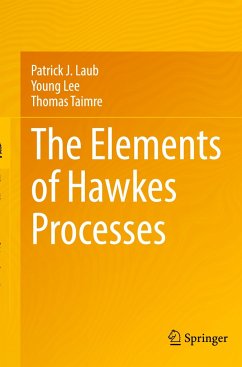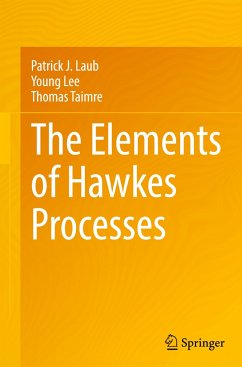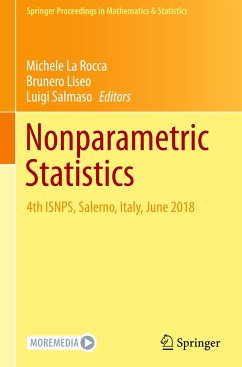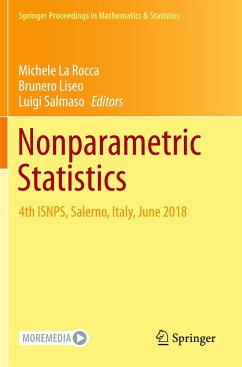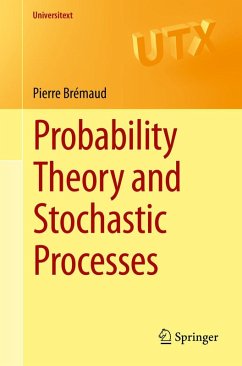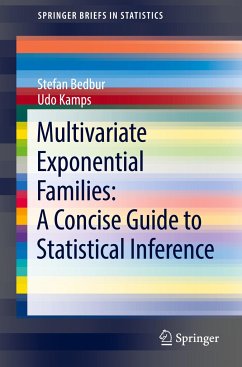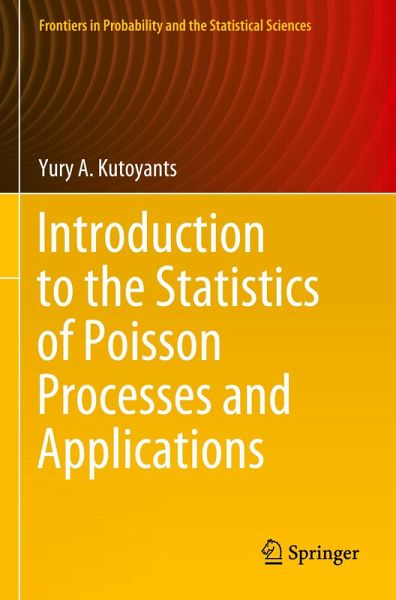
Introduction to the Statistics of Poisson Processes and Applications
Versandkostenfrei!
Versandfertig in 6-10 Tagen
122,99 €
inkl. MwSt.
Weitere Ausgaben:

PAYBACK Punkte
61 °P sammeln!
This book covers an extensive class of models involving inhomogeneous Poisson processes and deals with their identification, i.e. the solution of certain estimation or hypothesis testing problems based on the given dataset. These processes are mathematically easy-to-handle and appear in numerous disciplines, including astronomy, biology, ecology, geology, seismology, medicine, physics, statistical mechanics, economics, image processing, forestry, telecommunications, insurance and finance, reliability, queuing theory, wireless networks, and localisation of sources.Beginning with the definitions...
This book covers an extensive class of models involving inhomogeneous Poisson processes and deals with their identification, i.e. the solution of certain estimation or hypothesis testing problems based on the given dataset. These processes are mathematically easy-to-handle and appear in numerous disciplines, including astronomy, biology, ecology, geology, seismology, medicine, physics, statistical mechanics, economics, image processing, forestry, telecommunications, insurance and finance, reliability, queuing theory, wireless networks, and localisation of sources.
Beginning with the definitions and properties of some fundamental notions (stochastic integral, likelihood ratio, limit theorems, etc.), the book goes on to analyse a wide class of estimators for regular and singular statistical models. Special attention is paid to problems of change-point type, and in particular cusp-type change-point models, then the focus turns to the asymptotically efficient nonparametricestimation of the mean function, the intensity function, and of some functionals. Traditional hypothesis testing, including some goodness-of-fit tests, is also discussed. The theory is then applied to three classes of problems: misspecification in regularity (MiR),corresponding to situations where the chosen change-point model and that of the real data have different regularity; optical communication with phase and frequency modulation of periodic intensity functions; and localization of a radioactive (Poisson) source on the plane using K detectors.
Each chapter concludes with a series of problems, and state-of-the-art references are provided, making the book invaluable to researchers and students working in areas which actively use inhomogeneous Poisson processes.
Beginning with the definitions and properties of some fundamental notions (stochastic integral, likelihood ratio, limit theorems, etc.), the book goes on to analyse a wide class of estimators for regular and singular statistical models. Special attention is paid to problems of change-point type, and in particular cusp-type change-point models, then the focus turns to the asymptotically efficient nonparametricestimation of the mean function, the intensity function, and of some functionals. Traditional hypothesis testing, including some goodness-of-fit tests, is also discussed. The theory is then applied to three classes of problems: misspecification in regularity (MiR),corresponding to situations where the chosen change-point model and that of the real data have different regularity; optical communication with phase and frequency modulation of periodic intensity functions; and localization of a radioactive (Poisson) source on the plane using K detectors.
Each chapter concludes with a series of problems, and state-of-the-art references are provided, making the book invaluable to researchers and students working in areas which actively use inhomogeneous Poisson processes.



